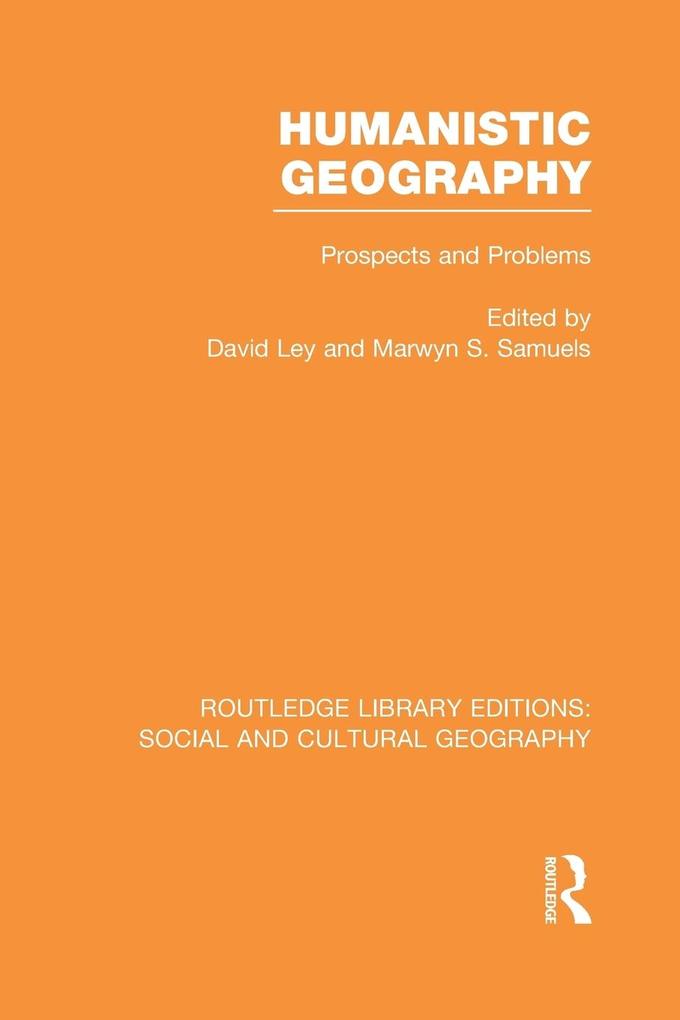Humanistic geography now has an established position in the intellectual development of contemporary geography. However there has so far been little attempt to draw together the humanistic approach in one broad statement. This book by the leading figures in the field provides a platform for the exposition of humanistic geography in all its aspects.
Inhaltsverzeichnis
Foreword 1. Contexts of Modern Humanism in Geography Part 1: Epistemological Orientations 2. Existentialism and Human Geography 3. Social Geography and Social Action 4. Uniqueness, Universality and the Challenge of La Geographie Humaine 5. The Vidal-Durkheim Debate 6. Towards a Humanised conception of Economic Geography 7. Of Ambiguity Part 2: Methodological Implications 8. The Historical Mind and the Practice of Geography 9. Understanding the Subjective Meaning of Places 10. The Landscape Indicators School in German Geography 11. Reflections on Experiential Fieldwork 12. Literature and Geography: Implication for Geographical Research 13. Introducing the Cartography of Reality Part 3: Some Research Directions 14. The Concepts of 'Place' and 'Land' in the Judaeo-Christian Tradition 15. Goethe's Approach to the Natural World 16. The Structuring of Space in Place Names and Words for Place 17. The Social Construction of Unreality: An Interactionist Approach to the Tourist's Cognition of Environment 18. Individual and Landscape: Theoughts on China and the Tao of Mao 19. Knowing One's Place: 'The Coloured People' and the Group Areas Act in Cape Town 20. The Urban Community Movement: Moving Towards Public Households













